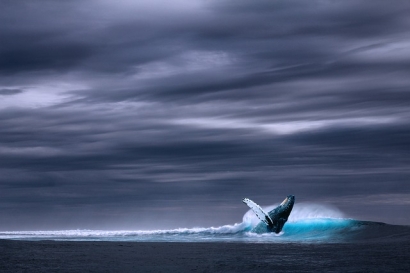
In addition to the Ten Principles of the UN Global Compact, the Sustainable Ocean Principles provide a framework for responsible business practices across ocean sectors and geographies. Companies signing on to the Sustainable Ocean Principles commit to assess their impact on the ocean and integrate ocean sustainability into their overall strategy.
The world depends on a healthy, productive and resilient ocean for food security, climate mitigation and economic livelihoods. Climate change, overfishing, pollution and unsustainable and inequitable development are damaging the health of our ocean and seas.
“Today’s commitment by 150 blue economy companies showcases the private sector’s willingness to support SDG 14. Healthy and productive oceans rely on all actors to do their part. I am encouraged by these companies and their commitment to integrate ocean health into their corporate strategies,” said Sanda Ojiambo, Assistant Secretary-General and CEO of the UN Global Compact.
Some of the largest blue economy companies, including Mediterranean Shipping Company (MSC), Orsted and SAP SE, have joined the 150 signatories of the UN Global Compact Sustainable Ocean Principles. Signatories span 30 industries, 35 countries and six continents, with a combined market capitalization of 1 trillion euros.
Several large shipping liners are amongst the companies committing. Accounting for around 80% of the volume of international trade and nearly 3% of global emissions, shipping is increasingly under the global spotlight. Signatories of the Sustainable Ocean Principles include many of the largest shipping companies, such as A.P. Moller - Maersk, MSC, CMA CGM and NYK Line. These companies hold an estimated combined market share of 50%.
Major offshore energy companies, including Engie, EDP, SSE Renewables and Iberdrola are also amongst the signatories. Scaling up renewables is a key priority for global climate action, but offshore wind still faces market barriers and challenges slotting into busy marine spaces facing ecosystem pressures. Leaders from the seafood industry, including Sanford Limited and Thai Union, have also committed to the Principles. The global seafood industry is increasingly taking sustainability more seriously and represents a vital source of healthy and potentially sustainable protein.
Sustainable Development Goal 14 (Life below water) still has the lowest level of financial investment of any of the 17 SDGs. There is a need for increased public, private and blended financing to foster a sustainable blue economy.
The UN Global Compact has also announced that five global stakeholders are developing a universal guidance for blue bonds—a commitment to provide the global market consistency and transparency in financing the sustainable blue economy. With "Bonds to Finance the Sustainable Blue Economy: a Practitioner's Guide”, the UN Global Compact, the International Finance Corporation (IFC), the International Capital Markets Association (ICMA), UN Environment Programme Finance Initiative (UNEP FI), and the Asian Development Bank (ADB) aim to provide market participants with clear criteria, practices and examples for issuances to advance the blue economy.
The full of list of signatories to the Sustainable Ocean Principles can be found here.

